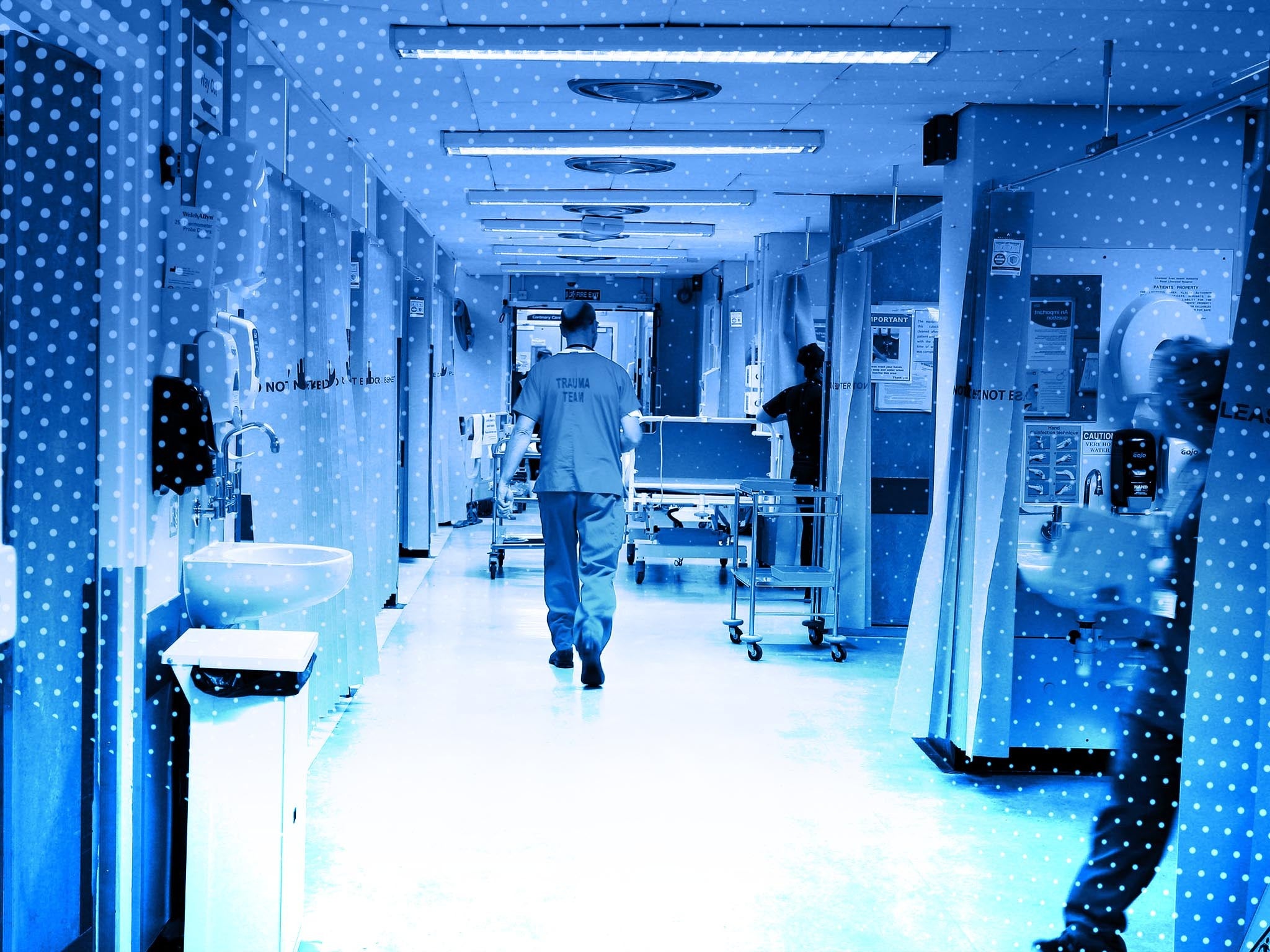To restore our A&E departments, here’s what NHS staff urgently need
How to heal the NHS: There is no job satisfaction in doing the bare minimum for each patient because there are just not enough staff to go around, writes Sarah Williams


Your support helps us to tell the story
From reproductive rights to climate change to Big Tech, The Independent is on the ground when the story is developing. Whether it's investigating the financials of Elon Musk's pro-Trump PAC or producing our latest documentary, 'The A Word', which shines a light on the American women fighting for reproductive rights, we know how important it is to parse out the facts from the messaging.
At such a critical moment in US history, we need reporters on the ground. Your donation allows us to keep sending journalists to speak to both sides of the story.
The Independent is trusted by Americans across the entire political spectrum. And unlike many other quality news outlets, we choose not to lock Americans out of our reporting and analysis with paywalls. We believe quality journalism should be available to everyone, paid for by those who can afford it.
Your support makes all the difference.During the time that I have worked as a doctor, the NHS has relied on the goodwill of those that work within it, in order to survive as a service. The pressures that the service and its staff now face are beginning to seem insurmountable.
Before the pandemic, we could barely cope with the number of patients attending A&E. After a very brief hiatus during the first lockdown we are now seeing record numbers of attendance day in, day out. Sadly, the emergency departments are now on their knees and the goodwill is fading as quickly as the ambulances are arriving.
The situation is unsustainable. As healthcare professionals, we are unable to provide the service that we have all trained to do. There is no job satisfaction in doing the bare minimum for each patient because there are just not enough staff to go around, and it is not acceptable to us or the patient to be waiting for hours or days to get bed space.
Nursing and medical colleagues are either leaving the profession in their droves or are reducing their hours because we, as a workforce, are broken. After all, we are only human, and coming out of the pandemic has not brought us the relief we so desperately require.
Retaining and recruiting staff is of paramount importance to change the course of the current situation, but the job is not an easy sell. Violence and aggression towards staff are now commonplace, resources are at a minimum, training is a very lengthy process, and shifts are poorly remunerated, particularly when considering the disruption they bring to our own health, families and lives.
While I understand patients’ frustrations, the regular verbal abuse, being spat at and increasingly more serious violent behaviour towards staff should not be tolerated. Despite efforts to equip us with conflict management skills, resilience training and debriefing after serious events, too many of us have either normalised this abuse as part of the job or decided to find employment elsewhere.
I don’t blame anyone for choosing to walk away – I have considered it myself several times in the last few years. Although the job is a vocation and yes, your taxes (and mine) do pay our salaries, I don’t know of anyone that deserves to be treated with such disrespect.
Without increased accessibility to nursing courses and an appropriate pay increase, the deficit in emergency nurses will only worsen. Emergency nurses are among the most highly skilled in the hospital, both in clinical practice, and management and leadership roles. Without adequate numbers of them, we cannot control the unpredictable beast that is the emergency department.
Read more from our series on ‘How to heal the NHS’ by clicking here
The increased influx of patients through the emergency department doors, coupled with the lack of staff, is of course only part of the problem. The current state of affairs leaves us with patients in the department for excessive lengths of time, which is compounded by the limited resources within social care. A considerable number of our patients do not need urgent or emergency treatment, but long-term care that cannot currently be provided in the community.
The emergency department has always been considered a safe place for all, and often utilised as a springboard to access appropriate community services, but our discharge strategies for patients are currently significantly hampered. Now bed space is at a premium, particularly for our mental health and elderly patients, and steps need to be taken urgently to address this issue.
On the face of it, the future of the NHS front line looks bleak. However, beneath all our exhausted and overwhelmed faces, there are NHS staff that believe in the service they work for. It is those staff who will undoubtedly try and resurrect the NHS to be a service that the nation can celebrate and be proud of. We cannot do this alone, and the issues highlighted need to be urgently addressed if we are to have any hope.
Dr Sarah Williams is a senior clinical fellow, and has worked in the NHS for the last 10 years in trauma & emergency medicine, both clinically and in a research capacity
Join our commenting forum
Join thought-provoking conversations, follow other Independent readers and see their replies
Comments